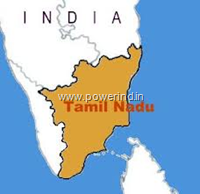Invoking its rights under the company laws, infrastructure major Lanco has rushed to the ministry of power and the corporate affairs ministry, urging them to suspend two key provisions in the accounting standards (AS) to save its gas-based Kondapalli power project in Andhra Pradesh, which has come to a standstill after a complete stoppage of supplies from Reliance Industries' KG-D6 block.
Lanco Kondapalli Power (LKPL), an independent power producer of the Lanco group, has written to the government seeking changes in the accounting norms that would allow the company to capitalise its borrowing costs and other expenses being incurred in the project pending completion of the commissioning activities that are delayed due to stoppage of KG-D6 gas supplies.
"We are seeking intervention of the corporate affairs ministry to suspend two key accounting standards dealing with 'accounting for fixed assets (AS-10)' and 'borrowing cost - suspension of capitalisation (AS-16)' citing unprecedented fuel and regulatory challenges beyond the control of the company. Once approved, the changes would benefit not only us, but close to 9,300 MW of gas-based power that are ready for commissioning but are without any gas," LKPL director and CEO, P Panduranga Rao.
Apart from Lanco, around 12 other gas-based projects, totalling a capacity of close to 8000 MW and investment of about Rs 45,000 crore, are under an advanced stage of construction and ready for commissioning but are without any gas allocation.
All these projects were constructed on promise of domestic gas allocation.
The projects are owned by companies such as GMR, Beta Infratech, Torrent, Reliance Power, GSECL.
As per AS-10, if the interval between the date of a project is ready to commence commercial production and the date at which commercial production actually begins is prolonged, all expenses incurred during this period are charged to the profit and loss statement. LKPL wants a relaxation in AS-10.
Similarly, the company wants a relaxation in AS-16, which states that the capitalisation of borrowing costs should be suspended during extended periods in which active development in interrupted.
According to LKPL, the disruption in gas supplies has delayed the commercial operation date of its 742 MW Kondapalli Stage III (the company has got project commissioning date extended by lenders from January 2013 to January 2015) by two years but the company expenses are being treated under revenue head subject to tax liability and this should be relaxed.
The Rs 2,610-crore project has a debt component of Rs 1827 crore financed by six lenders with Axis Bank as the lead lender.
Under Section 211 (4) of the Companies Act, 1956, a company on its own can also apply to the government to seek modification to the applicability of any requirements of the Act regarding matters to be stated in its balance sheet and profit and loss account, Kumar said.





